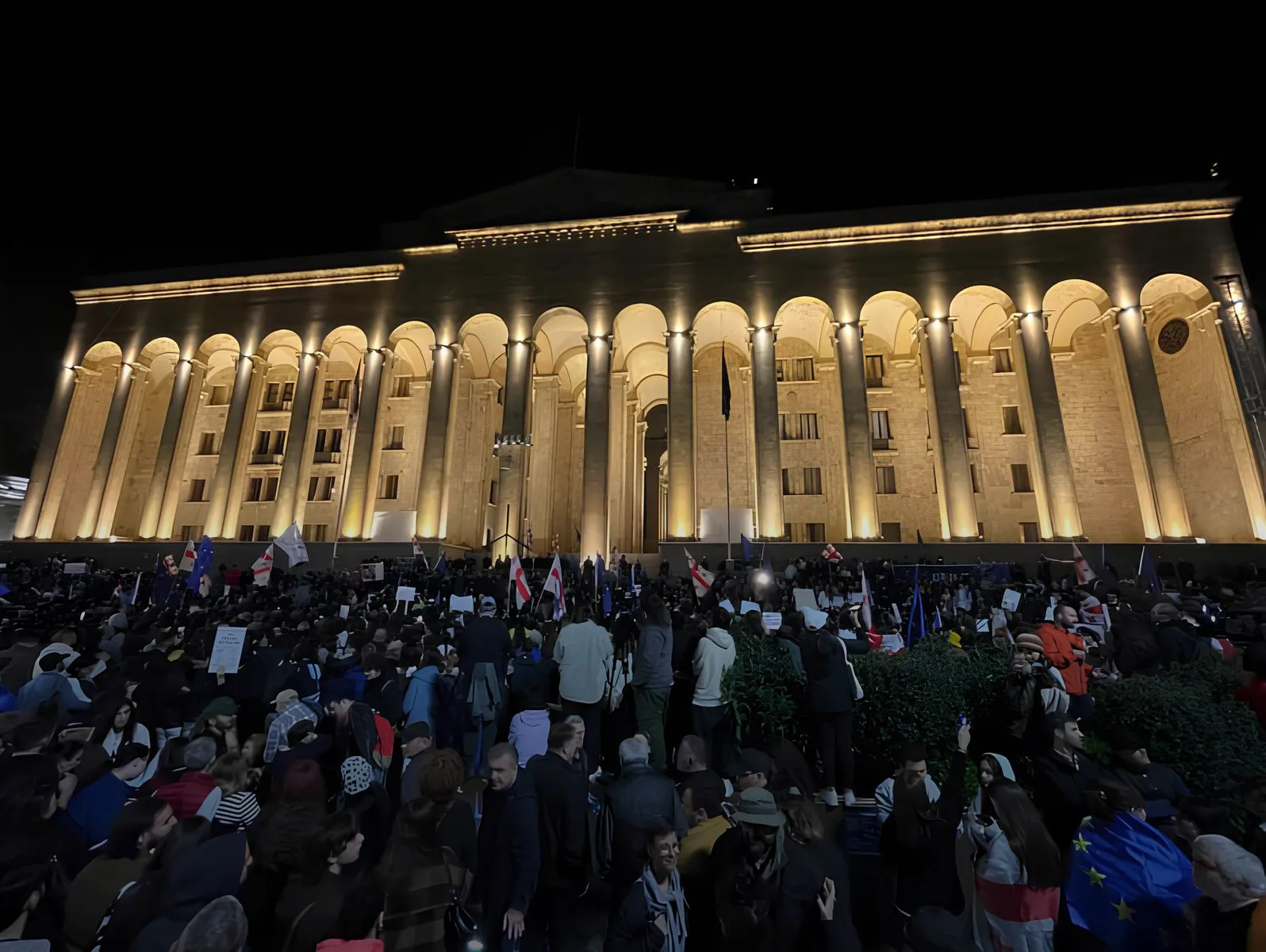This Tuesday, May 14, the Georgian parliament adopted a controversial law on foreign influence, despite the many thousands of people protesting almost daily for a month.
We stand in solidarity with the civil society, our partners, colleagues, and friends in Georgia and we strongly oppose this decision!
Many of the actions attributed to the Georgian authorities remind us of an all-too-familiar playbook of authoritarian leaders - intimidating phone calls and postering, hate speech, and physical attacks on activists far from the protest sites. The police used violence against the protesters: water cannons, tear gas, and even traumatic rubber bullets. Against the people who came to the parliament and filled the streets of Tbilisi every day to express their concerns about the state and their disagreement with the government’s actions. Multiple activists were seriously injured. The Georgian government tried to pass a similar law last year but was forced to back down after a week of intense protests. This year, young people have been a driving force behind the leaderless protests, with many banners reading “No to Russian Law” and “Yes to Europe.”
Why is this law dangerous?
The law will require organizations receiving more than 20 percent of their funding from abroad to register as “organizations of foreign influence” or face crippling fines.
The law has been called a "Russian law" by opponents since it was modeled after similar legislation that the Kremlin has used to suppress opposition and civil society since 2012. Many Georgians are concerned that this law will be used for the same purpose: to suppress dissent and freedom of speech by prosecuting non-governmental organizations that receive funding from abroad. These fears are reasonable considering the experience of other countries, such as Belarus, Azerbaijan, Hungary, Tajikistan, and Kyrgyzstan, where similar legislation has quickly become a tool for repressions and has been used as a mechanism to systematically silence and massively shut down NGOs and independent media outlets that openly criticize the state and publicly report on corruption, illegal persecution, etc.
There have been recent worrying signs in the form of legislative initiatives aimed at changing Georgia's Election Code to abolish gender quotas for female MPs, an initiative to change the constitution to protect family values and children, which seems to be the beginning of an anti-LGBT agenda, and an initiative to change the Tax Code to simplify the transfer of offshore assets to Georgia, which can be used to avoid possible sanctions.
Ahead of this year's parliamentary elections, the forcible adoption of the law looks like a weapon to obstruct their democratic course and consolidate the position of the currently ruling Georgian Dream party by undermining independent electoral monitoring. Several civil society organizations have already signed a statement that they refuse to register, looking into an uncertain future.
How can we support now?
- Support civil society in Georgia and the protestors directly in the place by providing gas masks and first aid kits if you are currently in Georgia or Donate to support organizations that provide:
Legal support Georgian young lawyers association
Paying protesters' fines Human Rights House Tbilisi - Consider signing a statement by the EPDE to call on European politicians - at national and EU levels - to take restrictive measures such as travel ban and asset freeze against those responsible for the violent crackdown on peaceful protestors and the deterioration of the political process in Georgia.
- Spread the word about the situation in Georgia on your social media and Join solidarity demos such as on 18.05. 3pm at Friedrichstraße 24 in Berlin @gza.europe
About on-site details of the protests and Georgia’s European integration, you can read in English on Tbilisi Tide, which we created together with our partners Development and Engagement Platform (DEP).
